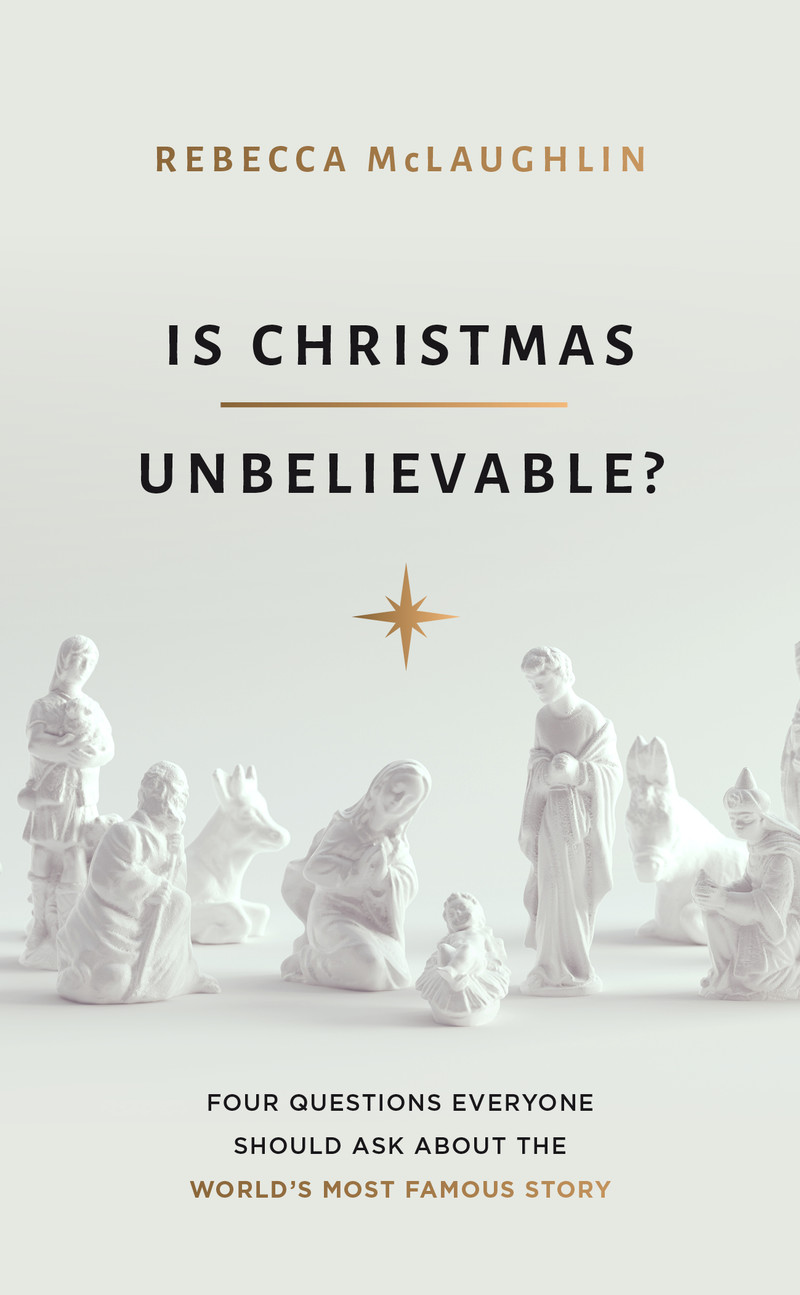I thoroughly enjoyed this little book. At 53 small pages of reading content, it was a great afternoon read during my Christmas break. Rebecca McLaughlin has become one of my favorite authors for her engaging writing style, deep research, and abundant citations. The book has only four chapters addressing four big questions about the biblical Christmas narrative:
- Was Jesus even a real person?
- Can we take the Bible seriously?
- How can you believe in a virgin birth?
- Why does it even matter?
Did Jesus exist?
As with her other books, McLaughlin starts each chapter with a difficult objection to Christian belief. To the question of Jesus’ existence, she looks to secular historians. Atheist biblical scholar Dr. Bart Erhman and second-century Roman historian Cornelius Tacitus both confirm the historical existence of Jesus Christ.
Tacitus was no fan of the Christians! But his account confirms what the gospels claim: that Jesus who was called Christ was executed during the reign of the Emperor Tiberius and under the authority of Pontius Pilate, who was governor of Judea from AD 26 to 36.
Rebecca McLaughlin, Is Christmas Unbelievable?: Four Questions Everyone Should Ask About the World’s Most Famous Story
Origin of the universe
Quite possibly my favorite fact from McLaughlin’s book is this: The scientific theory now known as the Big Bang was proposed in the 1930s by a Belgian Roman Catholic priest called Georges Lemaître. At the time, it was strongly resisted by some atheist physicists.
In fact, the name Big Bang was originally a mockery of the proposed theory.
At the time, the scientific community agreed that the universe had always existed, and Lemaître’s theory that God created everything in an instant was too incredible.
Scientists now understand that the universe is incredibly fine-tuned. There’s now a theory to attempt to explain how perfect our planet is for survival: that there are billions of other universes with different laws, and ours happens to work out for us. But, as McLaughlin points out, this doesn’t explain why there’s something rather than nothing at all. Even Stephen Hawking couldn’t answer that question.
Historical concerns of the census during Mary’s pregnancy
McLaughlin addresses many historical concerns found in the gospels—like the issue of Luke citing a census during Mary’s pregnancy: This first registration took place while Quirinius was governing Syria.
(Luke 2:2, CSB) Scholars analyzing the writings of Jewish historian Josephus date this census at AD 6, which was about 10 years after King Herod died. But Luke wrote that Jesus was born during Herod’s reign. McLaughlin offers a disappointing solution: Josephus was perhaps unaware of a previous census, which Luke included in his gospel account. I enjoy the thoroughness with which Rebecca McLaughlin usually writes, but this simple answer to a contradiction like this was dissatisfying to me.
Conclusion
I enjoyed this short book overall, but I got the impression that McLaughlin rushed her research and writing. Nevertheless, with its small size, short chapters, and low price, the book makes for a great Christmastime gift for church members. I recommend Is Christmas Unbelievable? to anyone interested in a quick and logical overview of the Christmas story.
